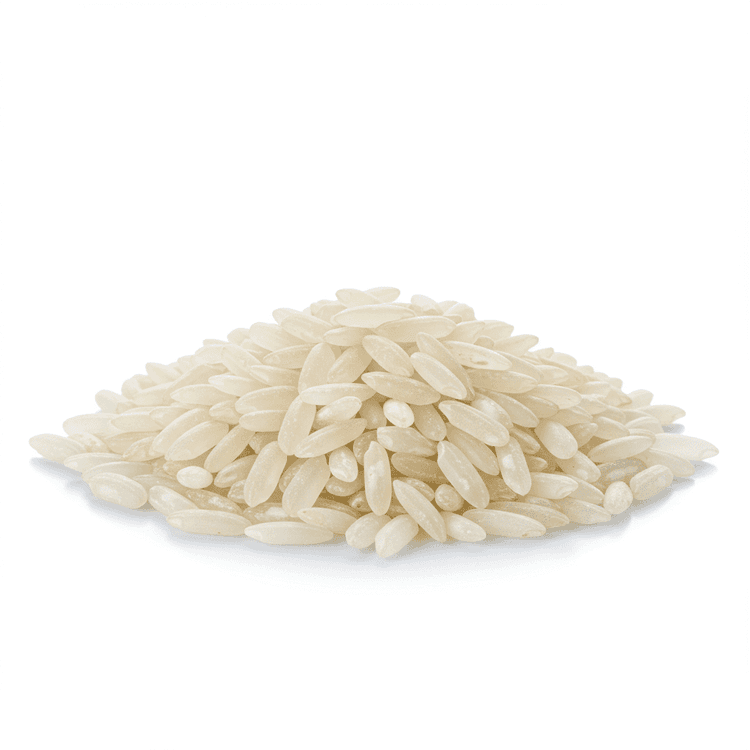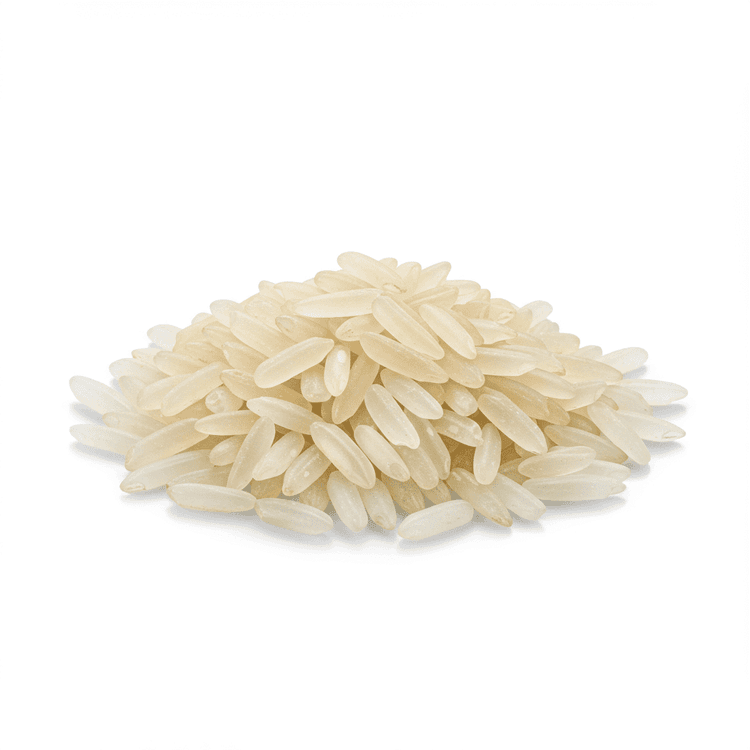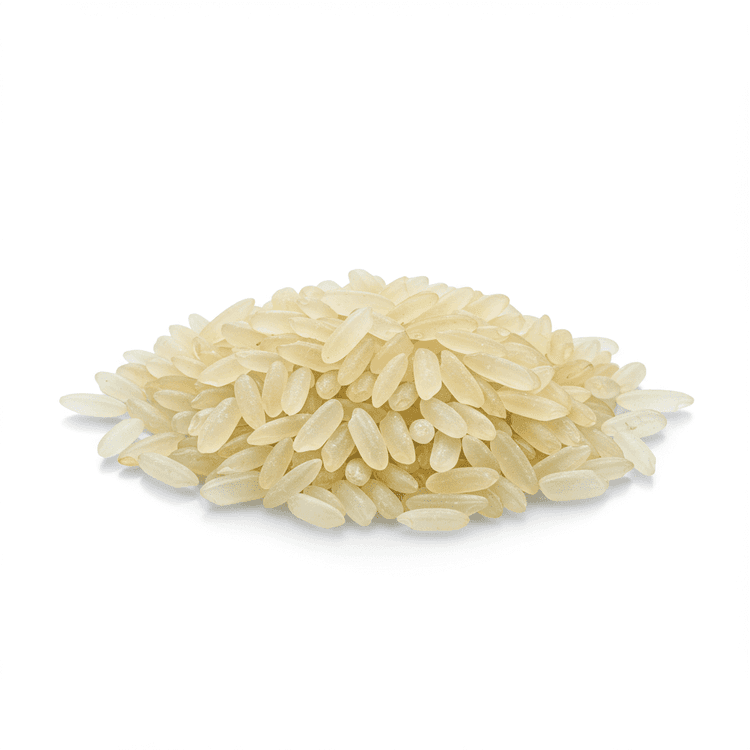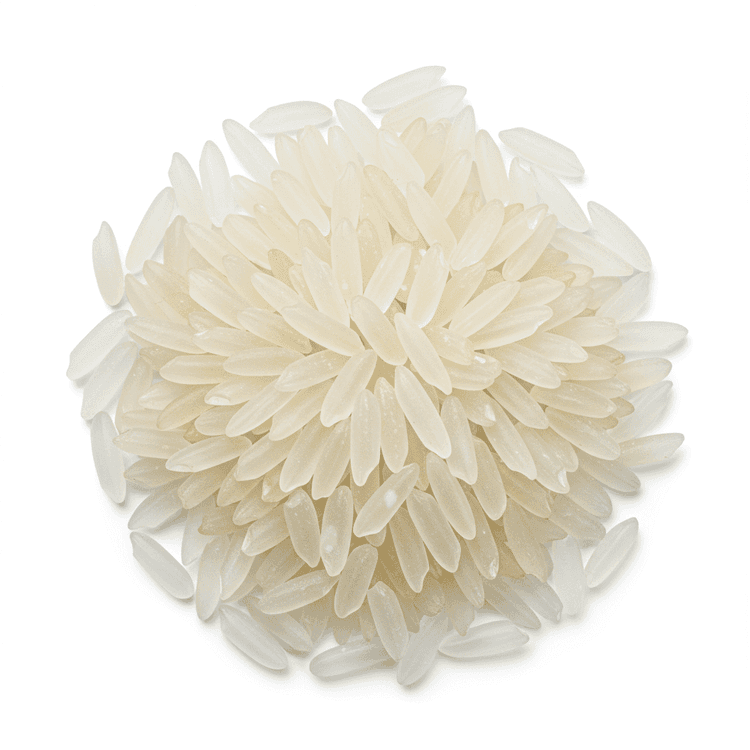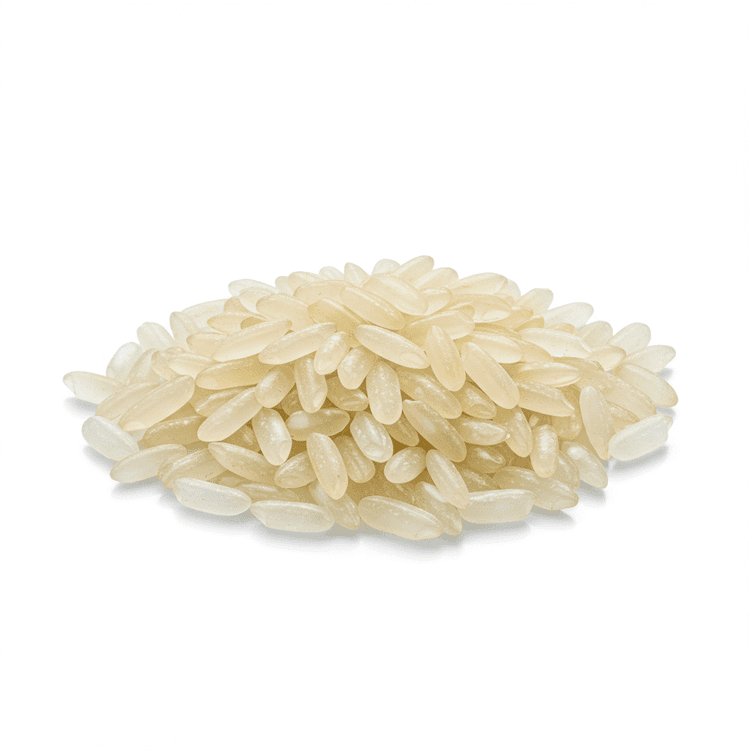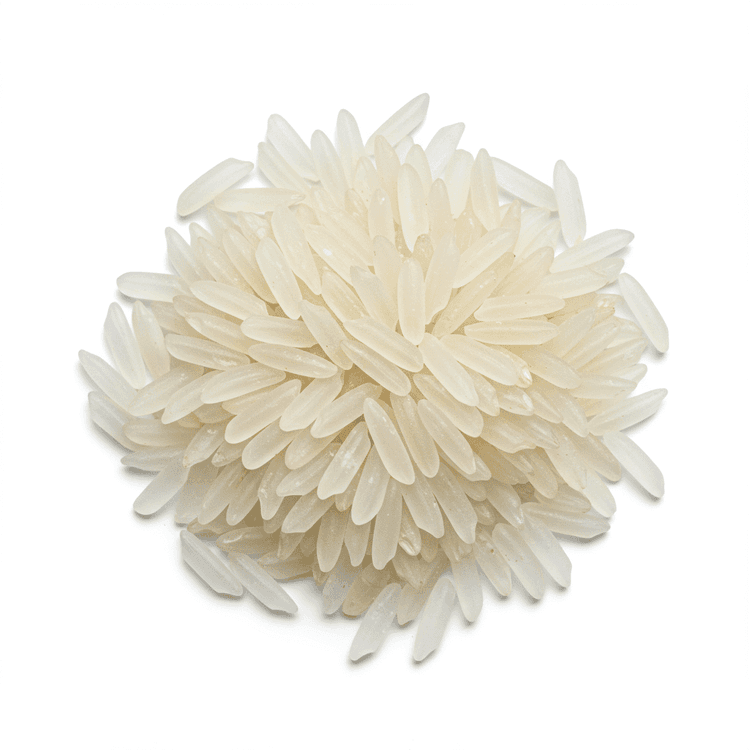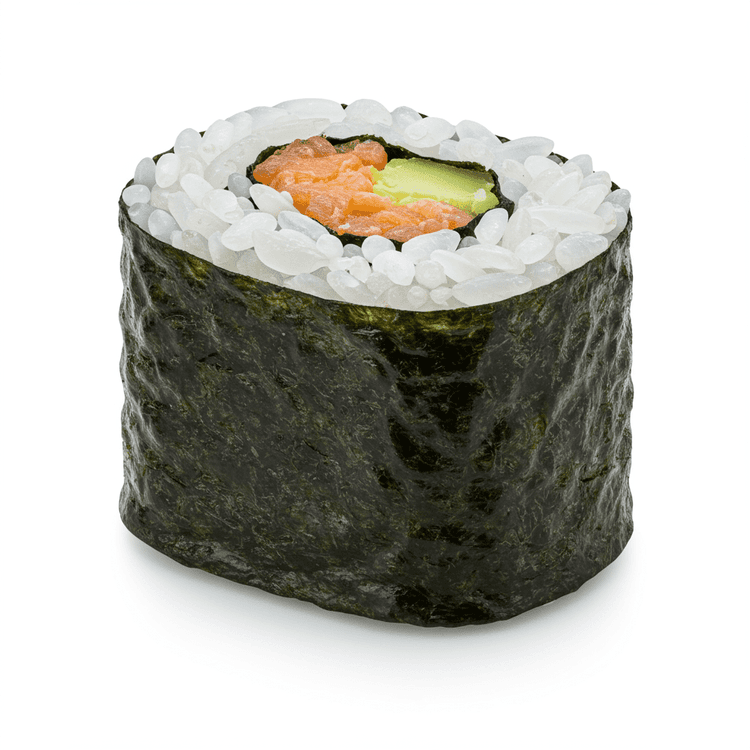
Sushi Rice
Sushi rice, also known as sumeshi, is a short-grain white rice distinguished by its slightly sweet flavor and sticky texture when cooked. Its plump, pearly white grains cling together, making it ideal for forming sushi rolls and nigiri. This special rice absorbs flavors well, making it perfect for vinegared sushi preparations. When properly cooked and seasoned with rice vinegar, it becomes the foundation for authentic Japanese sushi and other Asian-inspired dishes. Discover the best sushi rice for creating authentic Japanese meals.
Common Uses
- Perfectly steamed sushi rice is essential for making homemade sushi rolls. Whether you're creating maki, uramaki, or temaki, the sticky texture of properly prepared sushi rice will ensure your rolls hold their shape.
- Sushi rice is often shaped into small, oblong mounds called nigiri, which are then topped with slices of fresh seafood, such as salmon, tuna, or shrimp. The mild flavor of the rice complements the taste of the fish.
- Beyond sushi, sushi rice is a versatile ingredient for creating rice bowls. Combine it with cooked proteins like chicken or tofu, vegetables, and flavorful sauces for a satisfying and customizable meal.
- Use cooked and seasoned sushi rice to create onigiri, also known as Japanese rice balls. These portable snacks are perfect for picnics, lunchboxes, or a quick and easy meal. They can be filled with various ingredients, such as pickled plums, tuna mayo, or grilled salmon.
Nutrition (per serving)
Nutrition (per serving)
Calories
130.0kcal (6.5%)
Protein
2.7g (5.4%)
Carbs
28.7g (10.44%)
Sugars
0.0g
Healthy Fat
0.1g
Unhealthy Fat
0.0g
% Daily Value based on a 2000 calorie diet
Nutrition (per serving)
Calories
130.0kcal (6.5%)
Protein
2.7g (5.4%)
Carbs
28.7g (10.44%)
Sugars
0.0g
Healthy Fat
0.1g
Unhealthy Fat
0.0g
% Daily Value based on a 2000 calorie diet
Health Benefits
- Provides a source of carbohydrates for energy.
- Contains essential minerals like manganese and magnesium.
- Offers dietary fiber, promoting digestive health.
- Can be part of a balanced diet when consumed in moderation.
- Gluten-free, making it suitable for individuals with gluten sensitivities.
Substitutes
Chefadora AI is here.
Experience smarter, stress-free cooking.
Storage Tips
Uncooked sushi rice should be stored in an airtight container in a cool, dry place away from direct sunlight and moisture. This helps to prevent infestation and maintain its quality. Cooked sushi rice is highly perishable and should be refrigerated promptly after cooling, ideally within two hours. Consume within 1-2 days and reheat thoroughly before eating. Properly stored cooked rice can help prevent foodborne illness.
Marnirni-apinthi Building, Lot Fourteen,
North Terrace, Adelaide, South Australia, 5000
Australia
